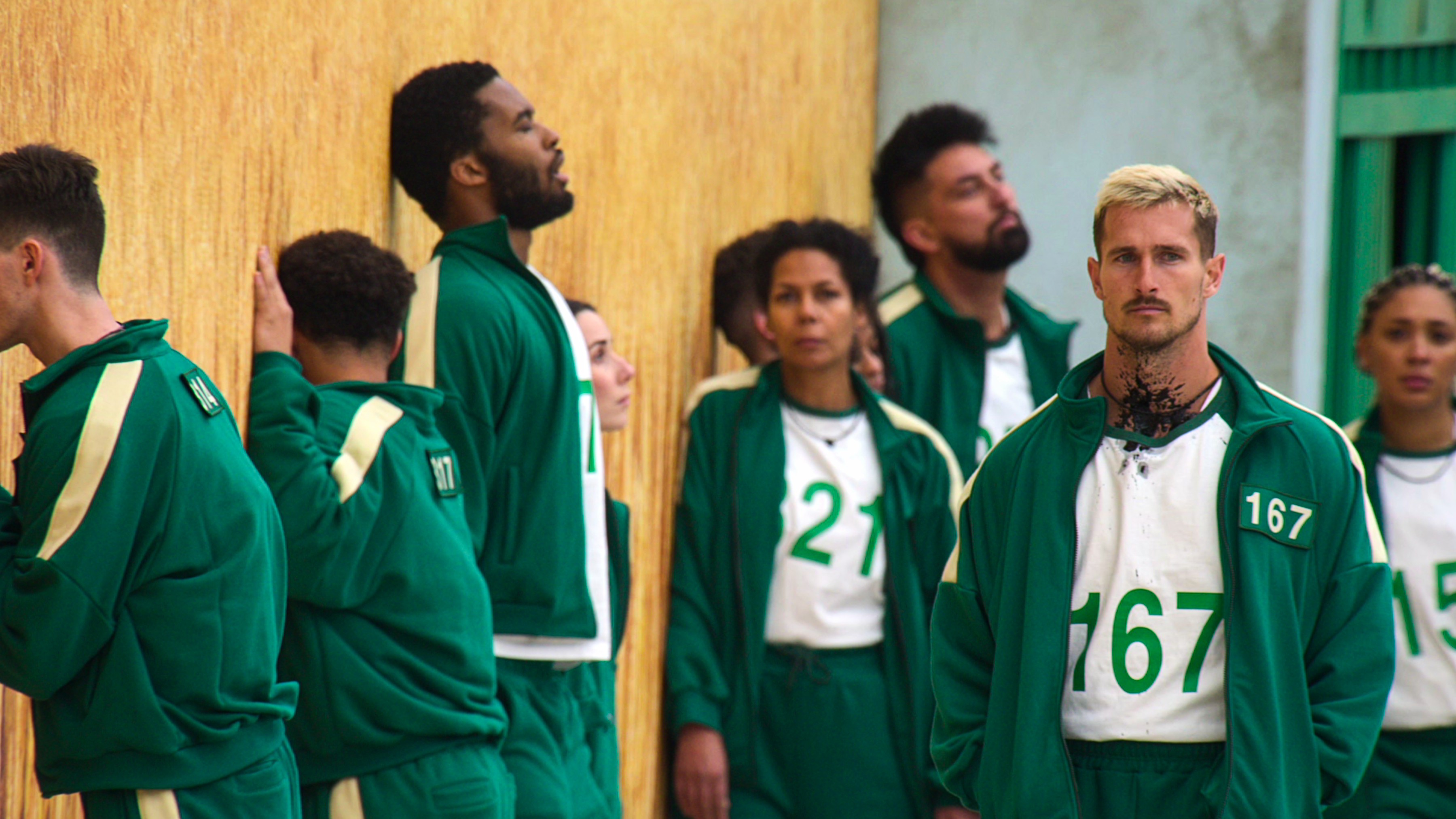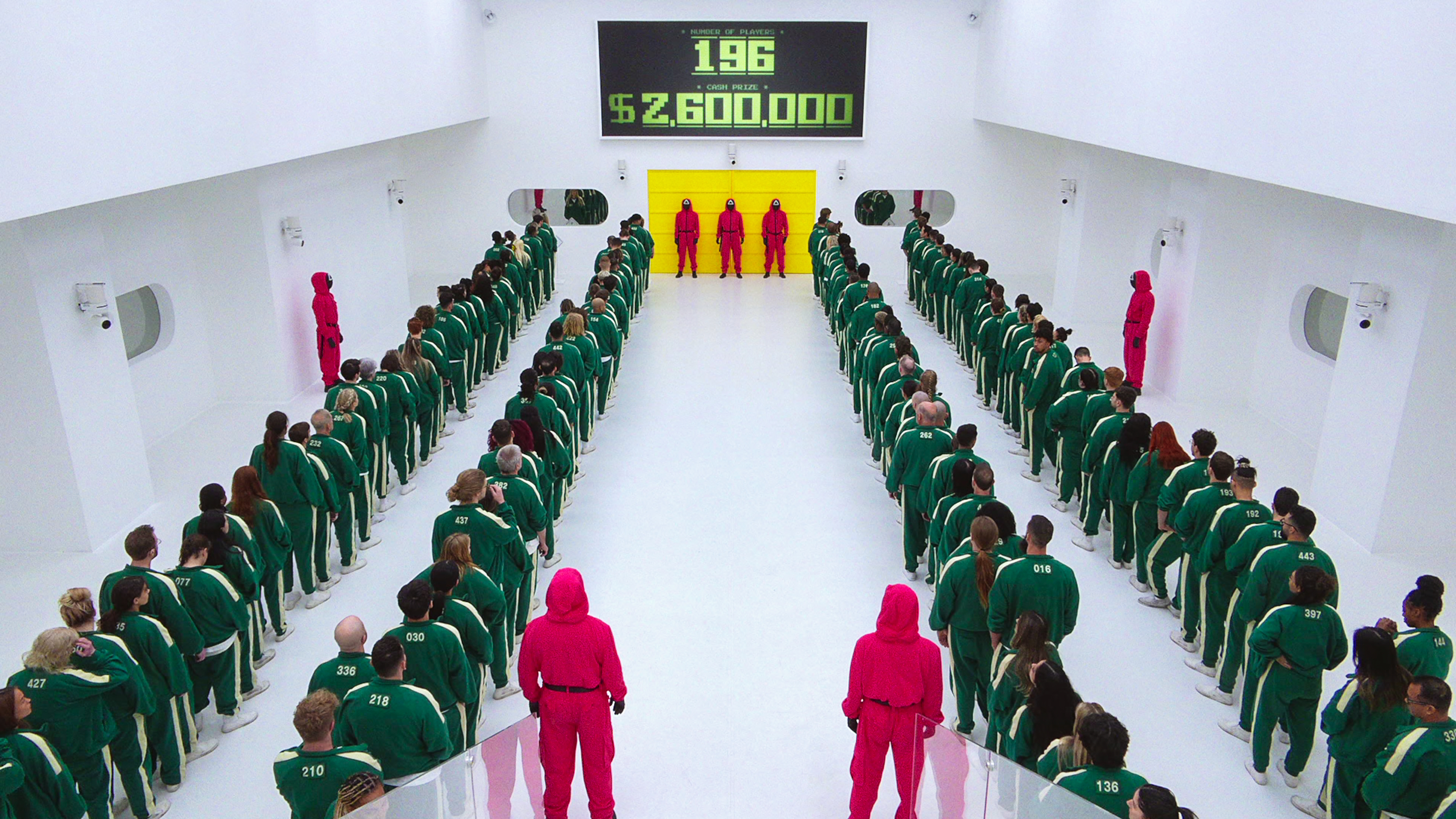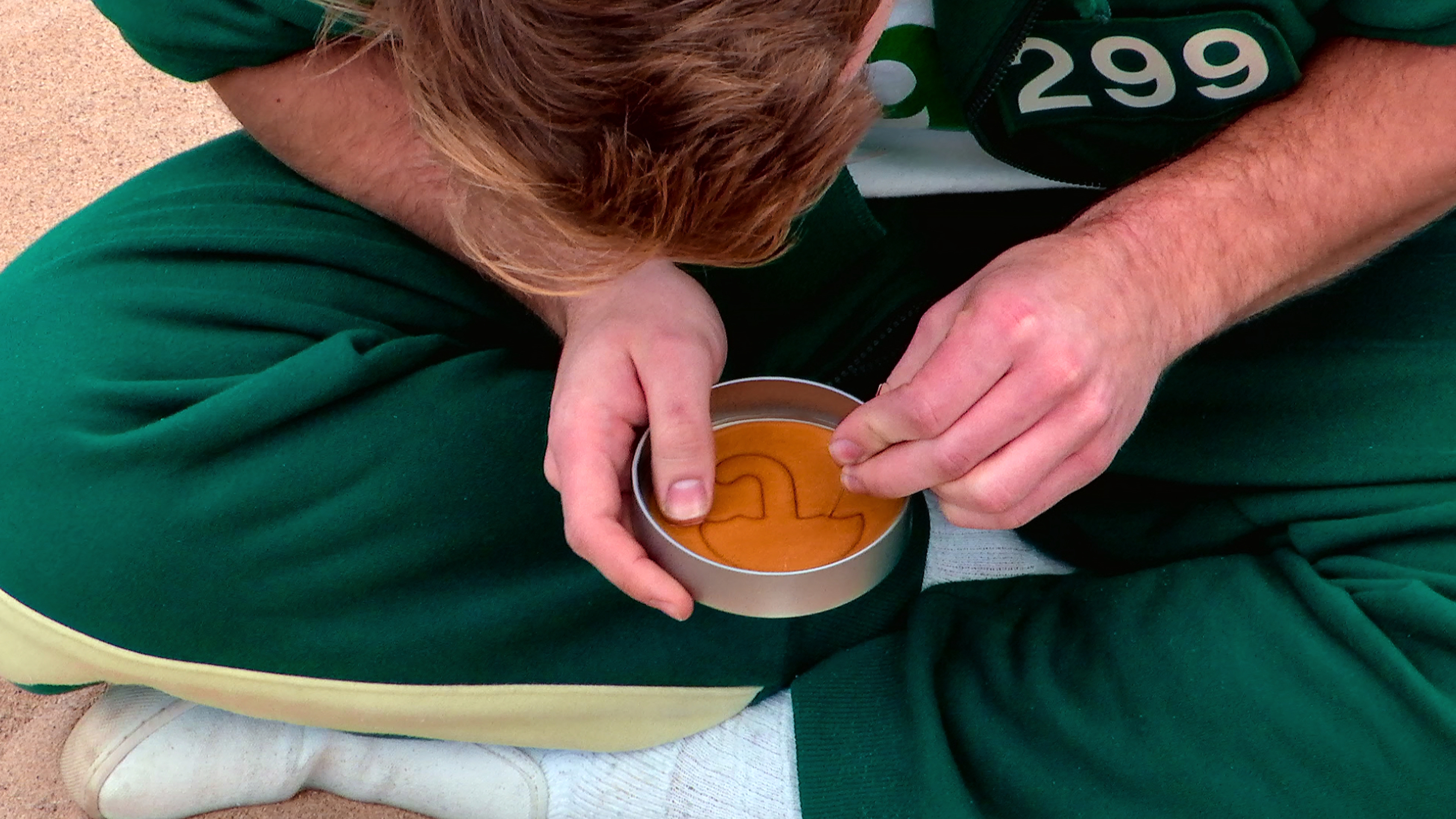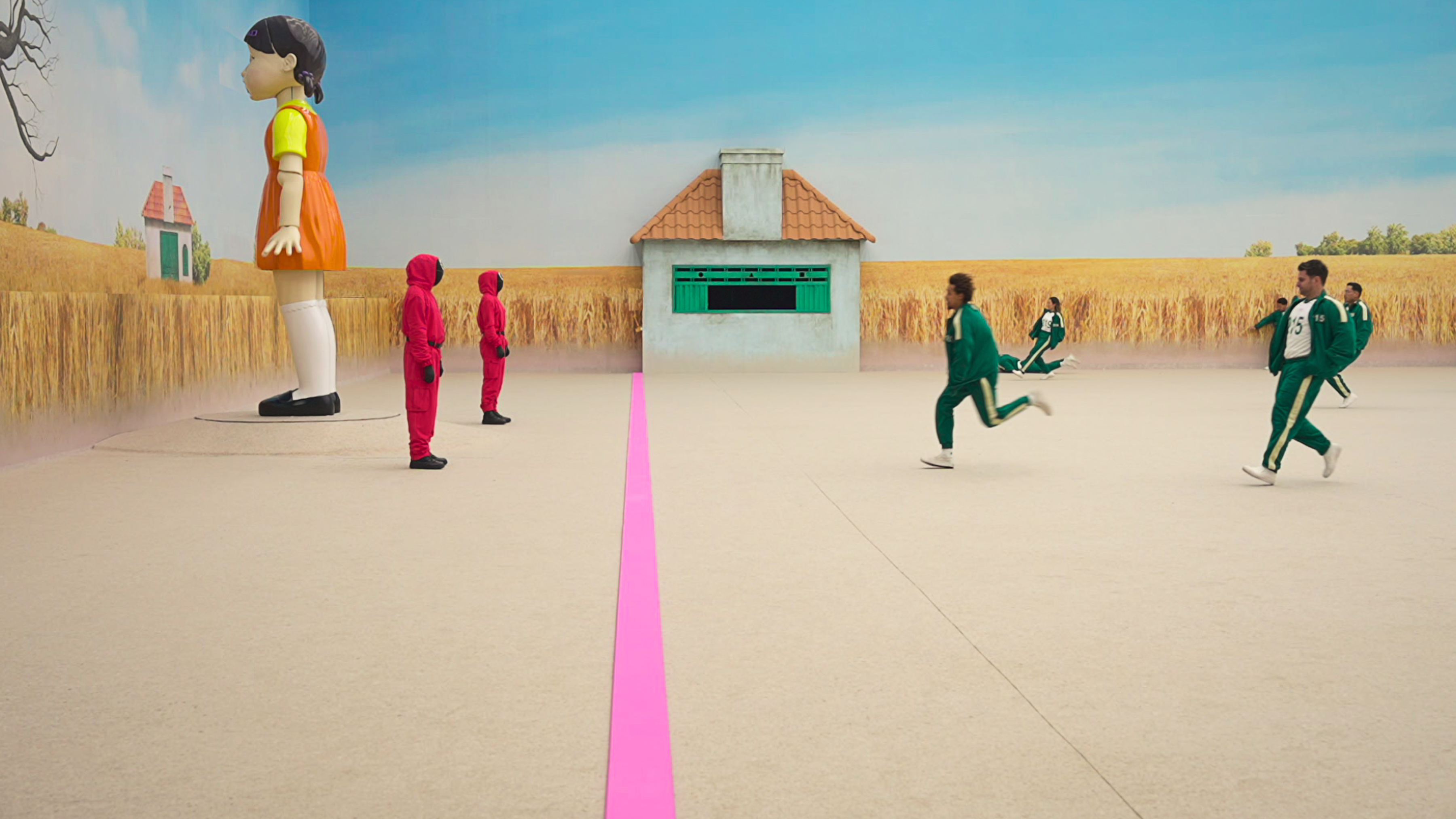Yes, they actually did it – real-life Squid Game is coming. With 456 contestants, and $4.56m on the line – Squid Game: The Challenge is bound to be all the rage.
We were lucky enough to sit down with a contestant and the producers to ask about what it was like to compete and produce the real-life version of the hit Netflix drama.
First, we had some questions for one of the ambitious contestants, Lorenzo.

Why did you apply for the show?
I knew I was the kind of person that shouldn't be on this show, they couldn't have written it better [for me]. When I watched the original show, I was like, 'If it was me there, I would've just done the perfect thing in that moment. I'd have been more clever than anyone'. I like to be delusional sometimes, I think it sometimes helps you cope with life.
What did you learn about yourself while competing, did you surprise yourself?
Honestly, looking back now, I'm surprised. If you tell me right now, that you'd have to stay still at intervals for seven hours in very cold weather, I'd say no chance, no chance in hell. I like warmth, and port, and fireplaces.
Looking back though, I had some motivation. When you're there you really get to think of what's important in life, mainly my ex. That was probably the biggest motivator, cause you're there like, 'What can I think of?' And I'll tell you something, hate is stronger than love.

Did you ever really feel like there was a life-and-death element?
Maybe you won't realise it at home, but being there, it's a fully immersive experience. It's not some low-quality stuff, it looks legit. So when you're in there, almost from the get-go, you're in the game.
Emotions run stronger. If I looked at it from a third-party perspective, I'd be like... 'why are they crying so early?' But actually, when you're in there, you just feel so much emotion, and everything is enhanced.
Do you have any regrets about your time in the game?
You know what – shoulda coulda woulda. I just don't work in regrets. For me, everything I do, I think is kind of perfect. So I don't think I have any regrets. This is how life goes. You know, there's, there's destiny, bigger factors play – I don't play with god like that.

How did the newly added games compare to the ones in the original?
A game like, 'Warships' was different from the original series, but at the same time, you can't really have people playing actual physical games. So I think if Warships was a game in the original series, it would definitely fit in.
While you were competing, was there any part of you that wanted to or could have cheated?
Every time you put me towards something, in any scenario, I will try and cheat the system and find a way through. I thought about them all. I even thought about peeing on the dalgona biscuit. But there's just no way you can cheat, it's impossible. But if there was, I would have found it.
Next up we chatted to the creators:

Is it easier or harder to make a game show based on a show people already love?
I think it's both. On the one hand, it gives you so much – it gives you a world, it gives you a game, it gives you a profile. But it also locks you into a show with 456 contestants. And that's a lot of people, so the challenge was how to get people to care about the cast.
Every time we focused on people, there was a risk that they would disappear, So passing the baton from one character to the next was one of the challenges. On top of that, the world had to be fully immersive. So this is about real contestants with real lives, not actors, 456 of them. So they had to believe that they were genuinely in the world of Squid Game.
[In the original] there's a lot that the script would give the audience that we couldn't rely on – so we had to create some additional games that would bring out moral choices and reveal people's characters.
It's a key challenge to deliver both the greatest hits of the drama and the surprise that was such a keynote of the drama. But in that, we were helped by the fact that already in the game were these sorts of pre-games, where people had to make choices or build alliances or, you know, pick a bib or choose a shape. We were able to play with the pre-games so that you could still deliver the rug pulls and still revisit some of the greatest games from the drama.

Was it surprising how long some games took, or was that something that you just completely anticipated?
It wasn't surprising because we had to have independent adjudication of each person that was eliminated. So that just took a long time because we were videoing people. And then if the people that were looking at the videos thought, 'oh, I think they've moved in the wrong way', then that had to be checked, and then the chief adjudicator had to check it. Because we were giving away so much money, we had to be scrupulously fair.
When 456 people are playing a game, and we don't know which one person is going to be the person who walks away with $4.56 million, we had to make sure that we had coverage of every player playing the game.
We could freeze the game, but we couldn't go back and do bits of it again.
So that means you have to make sure that when you're recording it, you get everything you need the first time because there is no second time.

Did any of the contestants seriously surprise you?
The whole thing that attracted us to it in the first place is that the game in the drama is an ingenious mechanism for revealing character under pressure. There were lots of people who turned out to have surprising sides – that's one of the things that makes it rich and interesting to engage with.
The overall surprise, I think, was that it's sort of set up to be this war of all against all, but there were actually lots of moments of kindness and compassion and solidarity. The range of tones and sort of moods in it was a very positive surprise.
The quality of the interviews we had was almost therapy-like. For instance, the Mormon guy who talked about his childhood and not understanding the jokes that his siblings used to make, and being very gullible. He was so honest. That's a quality of honesty you don't often get in reality shows

